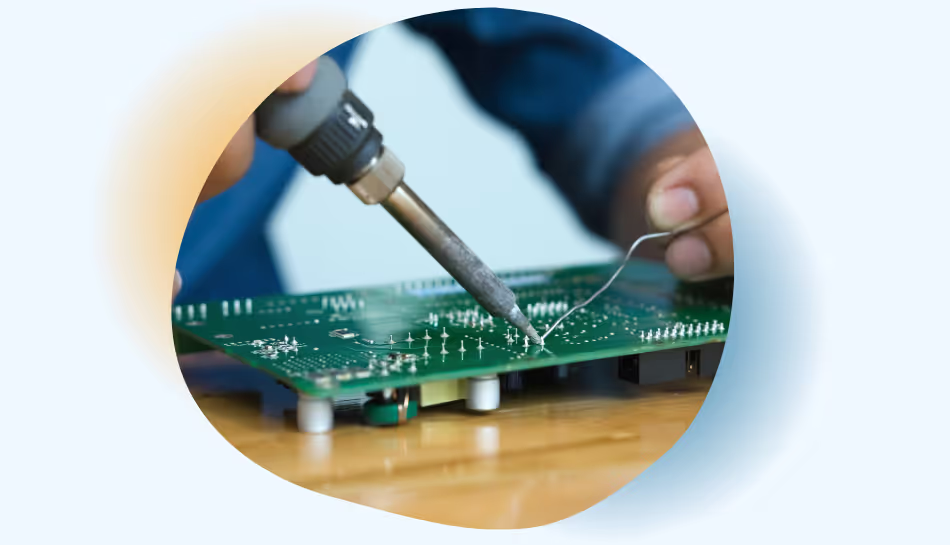In the world of manufacturing, time is money. Whether you're producing auto parts or industrial machinery, delays, wastage, and miscommunication can slow down operations and eat into profits. That’s where custom ERP software for manufacturing comes in… a powerful tool designed to improve coordination, speed, and decision-making across the production floor. For large manufacturers especially, adopting a tailored ERP solution isn’t just about keeping up. It’s about getting ahead.
What Is Custom ERP Software for Manufacturing?
ERP (Enterprise Resource Planning) software brings together all the key functions of a business, like inventory, procurement, production, finance, and sales, into one integrated system. Best ERP for manufacturing industry takes this a step further by being designed specifically for your manufacturing processes, industry needs, and growth goals. Instead of adapting your workflow to fit a generic system, you get a solution built around how you operate.
Why Manufacturers Need Custom ERP Solutions
Manufacturing is complex. From raw material sourcing to assembly lines, from quality checks to shipping, every step must run smoothly. A customized ERP helps ensure just that by:
- Reducing manual processes
- Preventing data silos
- Improving real-time visibility
- Speeding up decision-making
- Aligning all departments on one platform
It’s not just a software. It’s a strategy for manufacturing operational efficiency.
Key Benefits of Custom ERP in Manufacturing
1. Production Planning & Scheduling
With a custom ERP, manufacturers can accurately plan production based on inventory levels, sales forecasts, and machine availability. This minimizes idle time and maximizes output.
2. Inventory Optimization
ERP systems track raw materials and finished goods in real time, helping you avoid overstocking or stockouts. Smart alerts and automated reordering keep your supply chain lean.
3. Improved Quality Control
Custom ERP software can integrate quality checks at every stage of production. Issues are flagged early, reducing waste and ensuring consistent product standards.
4. Cost Reduction
By automating repetitive tasks, reducing errors, and optimizing resource use, ERP solutions significantly lower operational costs, especially at scale.
5. Data-Driven Insights
With real-time dashboards and custom reporting, managers can monitor performance KPIs, identify bottlenecks, and make faster, smarter decisions.
6. Integration with Industry 4.0
Modern manufacturing embraces Industry 4.0 ERP capabilities like IoT integration, machine learning, and AI-driven analytics. A custom ERP can tie into smart machines, enabling predictive maintenance and digital twin modeling.
Tailored ERP vs. Off-the-Shelf: What’s the Difference?
While off-the-shelf ERP platforms work for general use, manufacturers often face limitations like:
- Features that aren’t relevant
- Lack of integration with legacy systems
- Difficulty adapting to specific workflows
- Inflexible reporting formats
In contrast, custom ERP software for manufacturing is built around your specific needs. It adapts to your operations, not the other way around.
Real-World Impact
Large-scale manufacturers that adopt ERP software often see improvements like:
- 25–30% faster production cycles
- 40% reduction in inventory-related costs
- Better on-time delivery rates
- Greater visibility into production KPIs
- Smoother coordination between departments
Whether you’re running multiple plants or managing a single high-volume facility, the right production management system can become the backbone of your growth strategy.
Getting Started
Here’s how manufacturers can begin the ERP journey:
1.Assess your current workflow
Where are the bottlenecks?
What systems are disconnected?
2.Define your must-have features
Shop floor control?
Vendor management?
Advanced forecasting?
3.Choose the right implementation partner
Look for industry experience
Ensure the solution is scalable and modular
4.Train your team
The best ERP won’t work unless your team understands and embraces it
5.Think long-term
Choose an ERP system that grows with your business and technology trends
Final Thoughts
In today’s competitive manufacturing landscape, efficiency is essential. With the right custom ERP software for manufacturing, businesses can move from chaos to coordination, from reactive to proactive, and from slow processes to smart performance. If you're ready to take your operations to the next level, ERP solutions for large manufacturers are the upgrade you can’t afford to skip.



